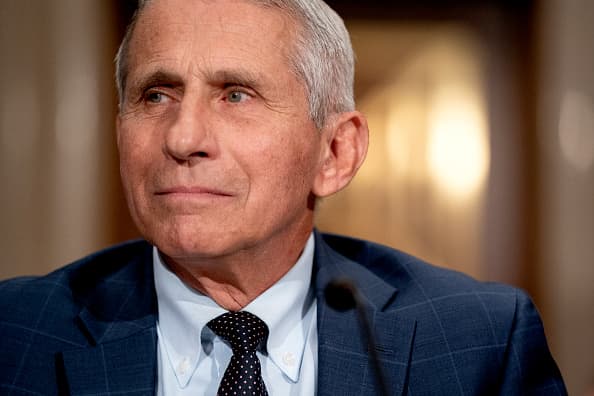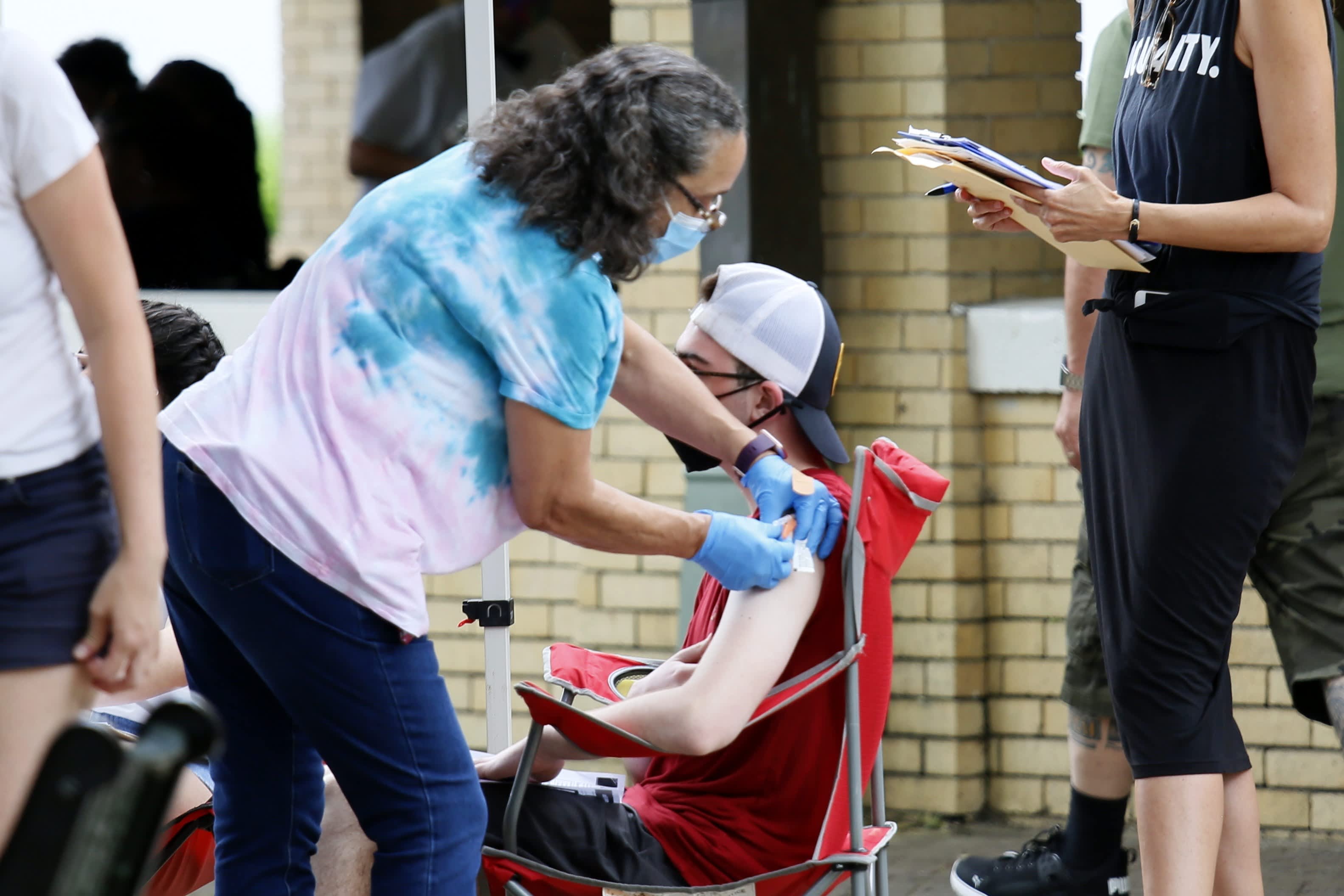John Wherry, director of the Penn Institute of Immunology, recently talked with a friend about whether going to a concert in a few weeks is a good idea.
He couldn't help but throw cold water on the plans.
"I was hoping to go to a concert in September, and I’m not," Wherry said in an interview. "I'm not comfortable in that environment."
He and two other infectious disease experts who spoke to NBC10 on Thursday said they recently have scaled back certain activities like dining indoors or gathering in large crowds. Each also said they have begun to wear masks again when going to the grocery store or the mall.
Get top local stories in Philly delivered to you every morning. Sign up for NBC Philadelphia's News Headlines newsletter.
All three are vaccinated, and espouse the huge benefits of getting the vaccination to prevent serious illness and death from COVID-19. Each said they did eat indoors at a restaurant as cases declined greatly during the summer, and felt comfortable going to some stores without a mask.
But that has changed, they said.
All counties in southeastern Pennsylvania, except for Chester County, along with every county in southern New Jersey and all of Delaware, are now in "substantial risk" for community spread of COVID, according to the Centers for Disease Control.
"Now is the time to start to scale back a little," said Dr. Marci Drees, the chief infection prevention officer at ChristianaCare in Delaware. "I worry we did open things up too quickly and Delta took advantage of it."
However, Drees added, "I don’t think we’ll need to shut down."
Here's a look at what the experts -- Wherry, Drees and Dr. Thomas Fekete, an infectious diseases physician at Temple University Hospital and the Thomas Durant Chair of the Department of Medicine at Temple -- say about returning to school in the fall; whether governments should impose new prevention mandates; and how long variants will play havoc with a return to normalcy.
Are Vaccinated People Safe from the Delta Variant? What About the 'Delta Plus' Variant?
Let's start with the toughest question to answer. (It gets easier from here.) All three experts agree that vaccinated people are much, much safer than unvaccinated people when they come in contact with the Delta variant, or any other variant like the newer "Delta Plus." When probing deeper into transmission rates and what might cause serious illness among both groups -- the vaccinated and unvaccinated -- it remains as challenging as ever for epidemiologists and immunologists.
However, the simple fact remains: Getting vaccinated clearly makes you much more likely to be unaffected by COVID, no matter the variant.
"We need to occasionally look at the half-full side of the glass. The vaccines are working. People are not dying," Wherry said. "It's somewhere between 1-in-30 and 1-in-50 among the unvaccinated. If you’re vaccinated, it’s like 1 in a million."
Should the Vaccinated Wear Masks Again While Shopping? Are Large Outdoor Events Safe?
The experts say they have begun wearing masks again when they go out into public places, and they each say they no longer eat indoors at restaurants. But they also say there is a big difference between eating inside a restaurant every so often, and going to a nightclub to dance among a throng of people.
Fekete said Philadelphia's decision this week to hold off issuing new mandates and restrictions, and instead recommend more mask-wearing and social distancing measures, seems to be the right tactic for now.
"The city is trying to find a nice path that is protective but not so annoying and rigorous that people disregard the rules," he said. "The states that have done very little are trying to call it back now, but they don’t have the right words for it after they poopooed it for so long. In places like Pennsylvania, where we have been wearing masks and going along with mandates, it’s not hard now."
As coronavirus cases continue to rise with each passing day, the trend is likely to continue into the fall, which means people should start reconsidering attendance of largescale events in the fall, the experts said.
Should Students and Teachers Wear Masks When They Return to School?
Drees and Wherry both have school-age children and are adamant that everyone should wear masks when the next school year begins. They say masks are necessary in confined spaces like a classroom, particularly when many schools will have children under the age of 12, which is the youngest age approved for vaccination currently.
Will Booster Shots Be Necessary?
The science is still unclear about the lasting effects of the coronavirus vaccine, the experts say. But Wherry, the immunologist, said the early research has been promising.
"In people immuno-compromised or with other medical reasons for why the vaccines didn’t work as well, a booster vax may be a very useful tool," Wherry said. "In the general population, I don’t see a lot of scientific evidence that we need a booster shot right now."
Another shot for the vaccinated to strengthen their inoculation is gaining steam in Europe and Israel, but has yet to gain widespread support in the United States thus far. The World Health Organization this week said in a statement that getting vaccines to people in underserved countries should be the priority for now.
Fekete, the Temple epidemiologist, said he supports continued research and would get a booster shot if the science eventually showed a need for it. He hopes vaccine distribution to underserved countries increases in tandem with any necessary booster shot in the future.
"There is room for a lot of vaccines in the world," Fekete said. "I’d rather see more vaccines that are imperfect than waiting in a long line for, say, Pfizer, and people not needing two shots with doses required to be stored in sub-freezing temperatures."



